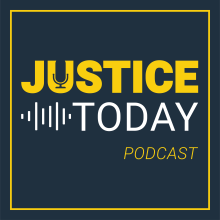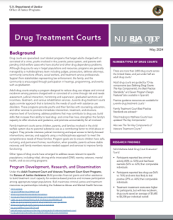Tribal courts
Importance of culture in measuring tribal crime seriousness: scoping review of crime seriousness indices
Tribal Crime, Justice, and Safety
Tribal Crime, Justice, and Safety, Part 1
Research indicates that Native American persons experience crime victimization at higher rates than non-Native people. Furthermore, the unique position of American Indian and Alaska Native tribes as both sovereign nations and domestic dependents of the U.S. creates jurisdictional complexities in responding to crime, justice, and safety. Senior social and behavioral scientist Christine (Tina) Crossland discusses NIJ’s research on these topics, especially on the prevention of violence towards American Indians and Alaska Natives. Communications Assistant Stacy Lee Reynolds hosts.
Booker and Beyond Analyzing Sentencing Reform and Exploring New Research Directions
This webinar features a discussion of previously published research on the U.S. Supreme Court’s 2005 Booker decision - which effectively transformed the United States Sentencing Guidelines from a mandatory, to an advisory, system. The presentation will address selected research findings from the last 15 years. Individual participants will briefly review their previous research findings with particular attention paid to the analytic methods used.
See the YouTube Terms of Service and Google Privacy Policy
Building Capacity for Tribal Justice Solutions: A Portrait of Assessments and Technology in Tribal Courts
Census of Tribal Justice Agencies in American Indian and Alaska Native Tribal Jurisdictions (Bureau of Justice Statistics)
Includes data on the number of law enforcement agencies and officers; characteristics of tribal courts and their caseloads; types of available criminal sanctions; and criminal justice statistics data collection and sharing capacity. The census collected data from nearly 350 tribes in the continental U.S. and is the first comprehensive effort to identify the range of justice agencies operating in tribal jurisdictions, the services those agencies...





